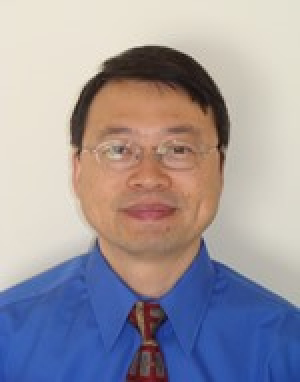
Date: Friday, Sept. 21, 2018 Time: 1 - 1:50 pm Location: D3 W122 Dr. Hulin Wu The Betty Wheless Trotter Professor & Chair Depart. Biostatistics & Data Science, School of Public Health Dr. Wu is the endowed Betty Wheless Trotter Professor and Chair, Department of Biostatistics & Data Science at the University of Texas Health Science Center, School of Public Health (UTSPH).Before joined UTSPH in 2015, he was a professor at the University of Rochester Medical Center. As PI/Co-PI, he had directed the NIH-funded “Center for Bio-defense Immune Modeling” from 2005-2015 with a budget over $20 million. He also directed several other NIH projects receiving a total of $30 million NIH funding for independent research in the past 18 years. He has published2 books and more than 120 peer-reviewed papers, and supervised more than 40 postdoctoral research fellows. Abstract: The real world EHR and health care Big Data may bring a revolutionary thinking on howto evaluate therapeutic treatments in a real world setting. Big EHR data may also allow us to identify specific patient populations for a specific treatment so that the concept of personalized treatment can be implemented and deployed directly on the EHR system. However, it is quite challenging to use the real world data in treatment assessment and disease predictions due to various reasons. In this talk, I will share our experiences on EHR and health care Big Data research. In particular, I will discuss the basic infrastructure and multi-disciplinary team that need to be established. Then I will demonstrate how to identify meaningful clinical questions and develop the analytic pipelines to address a class of clinical questions based on Big Health Care Data. Examples from disease-disease interaction network modeling, heart failure prediction, and vasopressor treatment evaluation for subarachnoid hemorrhage (SAH) patients based EHR data will be used to illustrate the novel concepts, challenges and opportunities to use the real world data for research to address important scientific questions.